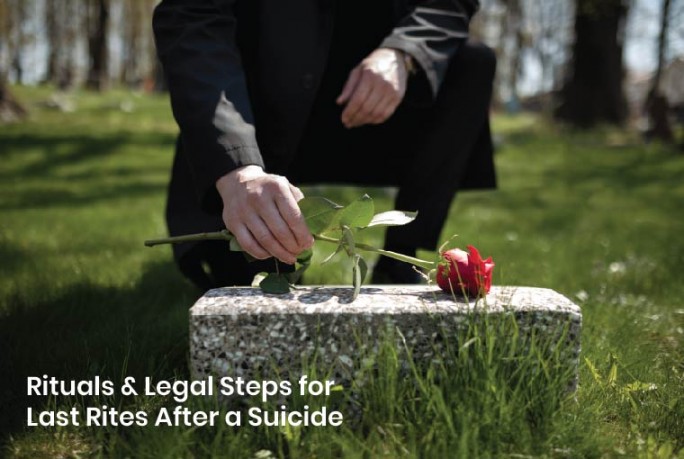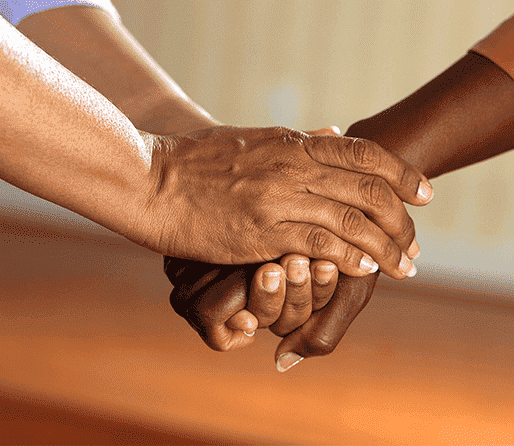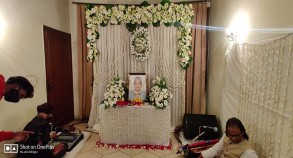Lastjourney Blog
5 Steps to Perform Last Rites After Suicide (Legal & Ritual)

 Table of Contents
Table of Contents- What are the legal formalities after unnatural death?
- Which rituals are performed after death in different faiths?
- Hindu Death Rituals and Antim Sanskar
- Christian Last Rites for Suicide
- Muslim Janazah and Suicide-Related Prayers
- What are the additional post-death ceremonies and offerings?
- Conclusion
The procedure of executing the final rites after a suicide incident is a vulnerable and difficult matter as it involves both legal formalities/ paperwork and culturally significant funeral rites.
Regarding the suicide deaths, different religious traditions have different practices. Such as specific rites, prayers, and observances. All the important legal and ceremonial procedures for carrying out the final rites following suicide in different religions and cultures are included in this article.
What are the legal formalities after unnatural death?
.jpg)
It is necessary to take care of the legal requirements following an unnatural death (suicide) before the religious rites take place. Here are the necessary documents that must be collected and submitted to the appropriate department.
- Death Certificate: Obtaining a death certificate, which is the beginning stage, may only be completed following an official investigation, frequently including the postmortem. In the case of suicidal death, the officials are responsible to verify the cause of death, which is noted as "suicide" in the case file.
- Suicide-Related Documentation: Legal officials will ask for the proof of the suicide, like a suicide note or proof of self-harm, to validate the demise. Before handing over the body to the family members or close kin, law enforcement may also interrogate about the circumstances if the death was unexpected.
- Family and Inheritance: To solve any inheritance disputes, a legal consultation is usually help in the case of legal suicide. In many jurisdictions, a suicide victim's estate can be handled differently, and the family may require legal assistance to deal with all the complications.
- Police Report and Investigation: If the suicide happened under doubtful circumstances, police intervention is unavoidable. The authorities will complete a report, and an investigation will follow to rule out any potential involvement of others in the death.
Which rituals are performed after death in different faiths?
.jpg)
Hindu Death Rituals and Antim Sanskar
Suicide are considered an act against the divine will, however in Hinduism, Hindu rituals following suicide are usually conducted with the highest care. It is important to keep in mind that suicide might be seen as the outcome of severe personal sorrow, and it is thought that the deceased soul needs right direction and peace.
- Antim Sanskar (Last Rites): The final ceremony given to the deceased is called Antim Sanskar. The deceased body is treated with holy materials like sandalwood, bathed, and clothed properly. Afer that, the family members participate in Pinda Daan, which represents the rice balls as a sign of respect and to help in the soul's journey towards salvation (moksha).
- Shraddh Ceremony: On the thirteenth day following death is frequently when the Shraddh ceremony is performed. During the shradh karm, family members pray for the deceased's soul and offer food in the hopes that it may find peace and progress toward moksha. In Hinduism, suicide is viewed as a more complex circumstance; yet, the Shraddh ceremony is still crucial for guiding the departed soul.
Christian Last Rites for Suicide
Suicide is sometimes viewed in Christianity as an act of grief or desperation rather than a sin. Instead of condemning the family members, many Christian religions emphasize on compassion and consolation.
- Confession and Blessing: -In many cases, Christian suicide protocols included a final benediction from the priest. The family of the deceased can also ask the priest to lead or guide on how to cope with the devastating loss.
- Funeral Service: Scripture readings, hymns, eulogies, and prayers for the soul's peace are all part of the traditional Christian burial service. Although suicides may not be specifically excluded, the ceremony places a strong emphasis on forgiveness and compassion.
Muslim Janazah and Suicide-Related Prayers
Suicide is strictly prohibited in Islam, and Muslim janazah and suicide-related prayers are destined to certain rules. The family of the deceased is also asked to grieve and offer prayers for the deceased's soul's forgiveness.
- Janazah Prayers: Regardless of the situation, Janazah (funeral) prayers are offered for the deceased Muslim person who has committed suicide. These prayers are typically offered with a focus on pleading for Allah's mercy.
- Burial: The deceased body is then placed in a grave facing towards Mecca. According to the Islamic customs, the deceased body is wrapped in a simple white shroud (kafan), and the grave is filled with soil as the final act of respect.
What are the additional post-death ceremonies and offerings?
Many cultures and religions have extra post-death ceremonies that help guarantee the soul's journey continues quietly after the main burial rites. These could consist of customs like-
- Providing food and other essentials to the needy people: In several Hindu and Buddhist traditions, families make charitable donations or offer food to the poor as part of their spiritual duties to help the deceased’s soul transition.
- Memorial Services: After the main funeral rites, families may hold annual memorial services to mark the deceased’s death anniversary and continue praying for their soul.
Conclusion
Both legally required suicide papers and culturally appropriate burial rites are part of the process of carrying out last rites following suicide. The rituals following death offer comfort and tranquility to the departed as well as the family members left behind, while the legal procedures following an unnatural death give the required paperwork and verify the cause of death. The last ceremonies in Hinduism, Christianity, Islam, and Buddhism all signifies the value of empathy, understanding, and harmony.
In these times of immense grief, families seek comfort through post-death rituals that respect the departed, helping them along their spiritual journey and ensuring that the living can find closure. Whether through Antim Sanskar, Shraddh ceremony, Christian prayers, Muslim janazah, or Buddhist merit transfer, the underlying message remains the same: the deceased, despite their tragic end, deserves a respectful passage to the next world, and those left behind are encouraged to heal.
Your email address will not be published. Required fields are marked *












